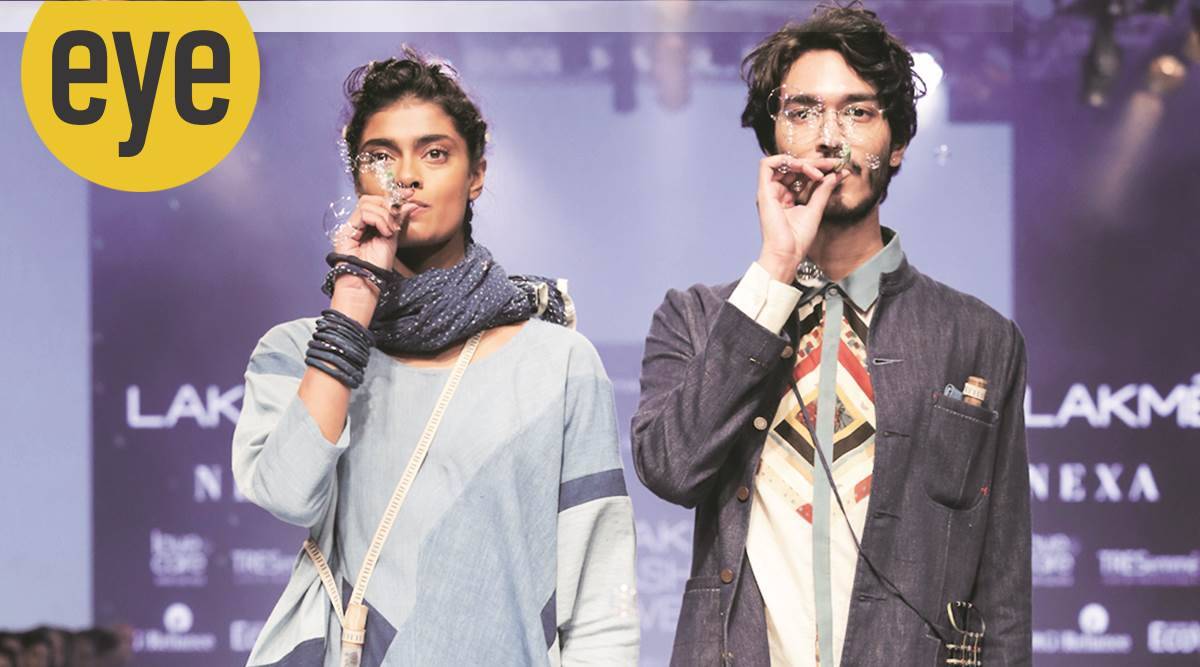Himanshu Shani and Mia Morikawa of the label 11.11 use kala cotton from Kutch and embellish it with Indian techniques like ajrakh, bandhani and kalamkari
Last year, around this time, Shani Himanshu and Mia Morikawa, the people behind the label 11.11, had just wrapped up their show at the Lakmé Fashion Week in Mumbai and begun to take stock of the orders that followed. This year, however, they have spent the past few months figuring a way out of the limbo that the fashion world has been stuck in, courtesy the COVID-19 pandemic. There are three aspects to fashion — design, manufacture, and retail. The denim 11.11 uses is handspun from Kala cotton, native to Kutch, and it needs little-to -almost-no-water to grow. The coarse fabric is used to fix everyday staples of any trendy millennial wardrobe: tunics, shirts, kurtas, pants, and dresses. A range of indigenous techniques — bandhani, ajrakh, kalamkari — are used as embellishments. The fabrics are dyed with natural vegetable dyes. Adding the word organic to an apple doesn’t make it organic. At a time of fast fashion and high consumption, it took time for Himanshu and Morikawa to figure out how to marry aesthetics with sustainability. The design was paramount to the essence of 11.11 but slowly they came to realize it could not be done at the cost of isolating it from sustainable work ethics. Design as art is at the top of the pyramid. So, at 11.11, they decided to see if they could make it more sustainable and eco-friendly. They use Kala cotton, which, because it’s a rainfed crop and is non-GMO, is automatically organic. They need to ensure that their infrastructure for sustainable fashion is in place, so that, over time, more and more designers look to it as a viable choice.

